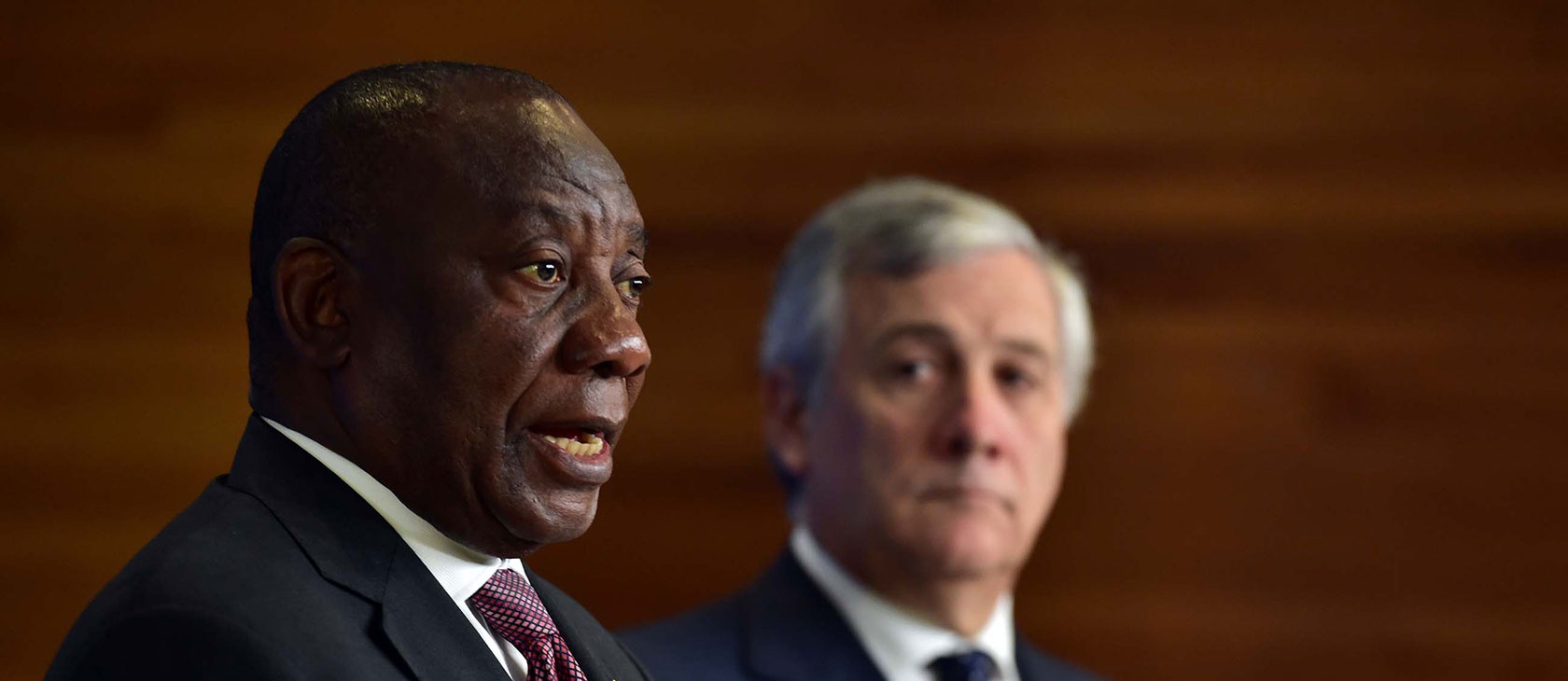South Africa’s institutionalized national sin of radical and often violent racial segregation, officially known as Apartheid, ended in the early 1990s. Changes in law, however, do not necessarily mean that there is immediate social transformation. The deep civic wounds that this dark period inflicted on the nation still fester, as evidenced in a March 1 vote by the National Assembly to confiscate white-owned land without compensation.
A national policy as thorough and systematic as Apartheid was always bound to create social problems without easy solutions, but this resolution is nothing short of thuggery and legalized vigilantism. The once violently oppressed South African majority that was once victimized by those who held the reins of state power, now liberated and democratically placed in control of those reins, have simply turned the same tools of oppression into weapons of vengeance. The National Assembly, led by opposition leader Julius Malema, will likely alter the South African Constitution so that this becomes national policy with no legal recourse. Malema is notable for saying to his supporters in 2016, “We are not calling for the slaughter of white people -- at least for now.”
...is the expropriation and redistribution of private property truly the answer to the problems that South Africa faces today?
South Africa is a beautiful nation with vast resources and almost unbridled potential. It is one of the wealthiest and most industrialized countries in Africa, but it is still plagued with poverty, unemployment, crime, and radical wealth inequality. The factors that influence this are myriad, but the decades-long rule of a privileged elite coupled with the disenfranchisement of the majority of the South African people is certainly a prominent contributing factor. With that said, is the expropriation and redistribution of private property truly the answer to the problems that South Africa faces today?
The March 1 vote by the National Assembly, ironically, marks an inverted return to the unjust policies of the last generation. It denies large portions of the population access to justice and places in jeopardy the key to economic development -- private property. Without a predictable system of ownership and a reliable system of transfer, property is only tenuously held. It may be farmed, grazed, or hunted, but the risks coincident to improvement (e.g., the building of a home, irrigation, or cultivation)—the danger that the owner will not be able to realize the long term gains—become an obstacle to development. What investor will build a factory on land to which the title is not secure?
The National Assembly has signaled that the rights to private property in South Africa are violable. Land to which title cannot be secured has value, but it is only a fraction of the commercial and economic value that it has when it can be transformed into capital that can be developed or leveraged in order that more value and more wealth can be created through business, or just through the trade that comes naturally when families put down roots and settle with confidence in their claim to land.
The frustration of the black majority is understandable. Even those who have risen into the middle class did so from a socioeconomic starting point vastly inferior to their white peers. The reasons for this disparity are profoundly unjust, but the remedy to injustice is not more injustice. This solution will only breed more distrust, contempt, and, likely, violence. South Africa has seen enough of these, and certainly does not need more. The antidote to the suffering of a historically oppressed majority is not the suffering of the privileged minority—it is the leveling of social and economic opportunities by the removal of artificial barriers to entry into the local economy and streams of commerce. There are many forms that this leveling might take, but the redistribution of wealth certainly is not one.
...the remedy to injustice is not more injustice.
In order for South Africa to tap into the vast potential that it has for economic flourishing for all of its citizens, the leaders must stop pursuing a policy of revenge and begin pursuing a policy of what Tocqueville called “equality in liberty.” An entire generation of black South Africans were denied this liberty, but given that they now control a majority of the National Assembly, the progeny of that generation could act to preserve it for all South Africans. The South African Constitution is relatively easy to amend—it requires only a two-thirds vote by the National Assembly in some cases. As long as justice is not secured for some South Africans, it is only as secure as a political majority for any South African. The irony is that the perpetuation of the injustice of the past, even if it is the mirror image of that particular injustice, perpetuates the instability of society and places in peril the liberty for the black South Africans that the last generation so patiently and persistently worked to achieve.
There’s no question that the gross disparities between white and black South Africans on the whole is the direct result of nearly fifty years of institutionalized national scandal. There is surely a long road ahead for South Africans of good will who seek the genuine justice available only in the establishment of a free and virtuous society. But as long as property rights are not secure and may be taken at the whim of a tyrannical majority, the full potential of all South Africans will not be realized, and the plagues of poverty, crime, and inequality will not be vanquished. For the sake of the flourishing of this nation and region, the National Assembly of South Africa should change course and guarantee justice for all of the nation’s citizens.
Image credit: GovernmentZA (CC BY-ND 2.0). Image cropped. Not for distribution.




